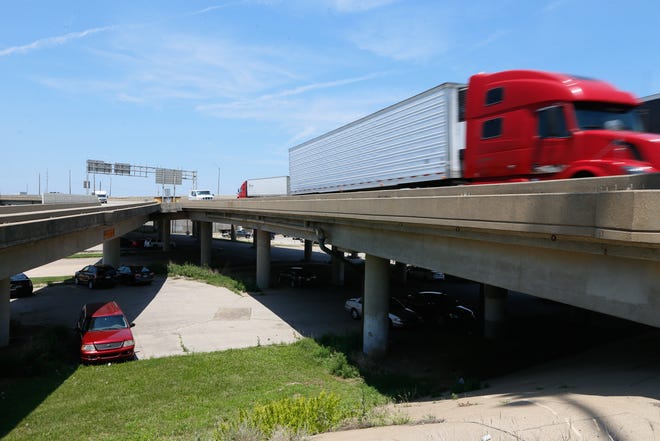President Joe Biden’s infrastructure bill backed by local chambers
[ad_1]
Billions of dollars will flow to Kansas if the Infrastructure Investment and Jobs Act passes, and local chambers of commerce are urging Congress to do so.
“Infrastructure is perhaps the most popular policy proposition that never seems to come to pass,†said Neil Bradley, executive vice president and director of policy at the US Chamber of Commerce.
Kansas would receive $ 2.6 billion for federal highway programs, $ 225 million for bridges, $ 150 million for airports, $ 273 million for public transportation, and $ 618 million for basin programs pouring if the bill passes.
“It solves a lot of problems,” said Curtis Sneden, president of the Grand Topeka Chamber of Commerce. “This package represents the exact type of investment we need to make now if we are to move into the future, we know it awaits us.”
Bradley and Sneden were joined by Tracey Osborne Oltjen, President and CEO of the Overland Park Chamber of Commerce, on Friday afternoon to support the legislation. Osborne Oltjen said local municipalities would be involved in determining how the money will be dispersed through conversations with the Kansas Department of Transportation and state legislature.
She praised the bill’s focus on “modern infrastructure” as it prepares to invest at least $ 100 million in Kansas for broadband expansion.
The money will flow to cities and counties through grants and working through KDOT. The bill comes at a steep price, but Bradley said more funding is needed for public infrastructure.
“You have to invest money to make money,†Sneden said. “Of all the ways you spend your federal tax dollars… upgrading and expanding our nation’s infrastructure like this package does, seems to me to be the best way to get the return we’re looking for. . “
More than 1,995 miles of Kansas freeways and 1,321 bridges are in poor condition, according to a White House fact sheet on the bill, with 15% of Kansas households without Internet subscriptions. Twelve percent of the state’s trains and other mass transit vehicles are past their useful life.
The state received a “C” grade on the American Society of Civil Engineers Infrastructure Scorecard.
Bradley said the bill was not perfect – he said he had never read perfect legislation – but added that he was reallocating COVID relief funds or unused employment benefits to offset expenses. He called it “the most fiscally responsible infrastructure package for over a decade”.
The legislation is slated for a vote in the Senate on Saturday at noon.
“This thing is moving fast,†Bradley said. “There is going to be a lot of work in Washington this weekend. “
[ad_2]

